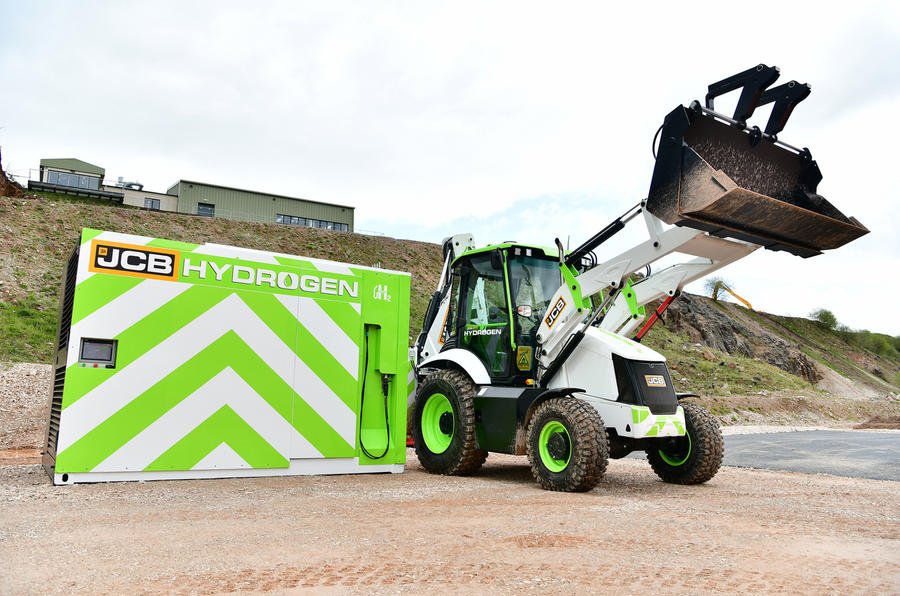JCB unveils hydrogen-fuelled combustion engine technology

Heavy machinery maker JCB has announced a hydrogen-fuelled piston engine that emits no CO2 and which it believes can help the transport industry achieve the UK government’s zero-emissions target quicker than any existing solutions.
JCB claims its research shows that the new engine – based on the hardware of JCB’s Dieselmax 448 four-cylinder engine but with substantial modifications at the top end – not only produces no CO2 but also offers important advantages over battery-electric and hydrogen fuel cell solutions, both of which are considerably more expensive.
JCB’s hydrogen engine is naturally aimed at its own off-highway applications but, after successful initial trials in excavators (which put far greater demands on engines than cars and trucks), the company’s engineers believe they have a technology that can be successfully applied in a much wider range of vehicles.
JCB’s chairman, Lord Anthony Bamford, decided to set up a specialist hydrogen engine research team at the company’s Derbyshire R&D centre in July last year after growing increasingly concerned about the impending loss of piston engine expertise and infrastructure and the disbanding of a well-integrated supply chain.
He explained: “We’re not arguing for diesel any more; that horse has bolted. Zero carbon emissions must be the target, but we don’t believe that batteries and fuel cells are the only solutions.”
Lord Bamford and his engineers believe they have more of a real-world view than most in the industry, because they have in recent years launched a very successful range of battery-electric diggers, plus they have considerable field experience of 20-tonne prototype excavators powered by hydrogen fuel cells. The hydrogen engine’s big advantages, explained JCB innovation chief Tim Burnhope, are that it can be speedily and affordably brought to production, while existing ICE know-how and infrastructure will remain relevant.
JCB’s prototype engine has an all-new induction system (lowered compression, new pistons, high-pressure common-rail fuelling and port injection) but it is designed to match the performance and driving characteristics of existing machines.
As for toxic emissions, even the ‘raw’ exhaust from JCB’s experimental hydrogen engine contains less NOx than a diesel, even with the latest after-treatment that cuts diesel pollutants by 98%.
Further measures can reduce this to what Burnhope calls “a zero-impact level”, where content is simply too small to measure. The only significant exhaust emission from a JCB hydrogen engine prototype that Autocar observed in action were puffs of steam on start-up.
JCB plans additional development of its hydrogen engine but already has its eyes firmly set on production.
“Our view is that there must be an opportunity here for people making traditional engines to move to zero CO2 as quickly as possible, using mature technology and an existing supply base,” said Burnhope. “And if you care about climate change, speed is crucial.”
